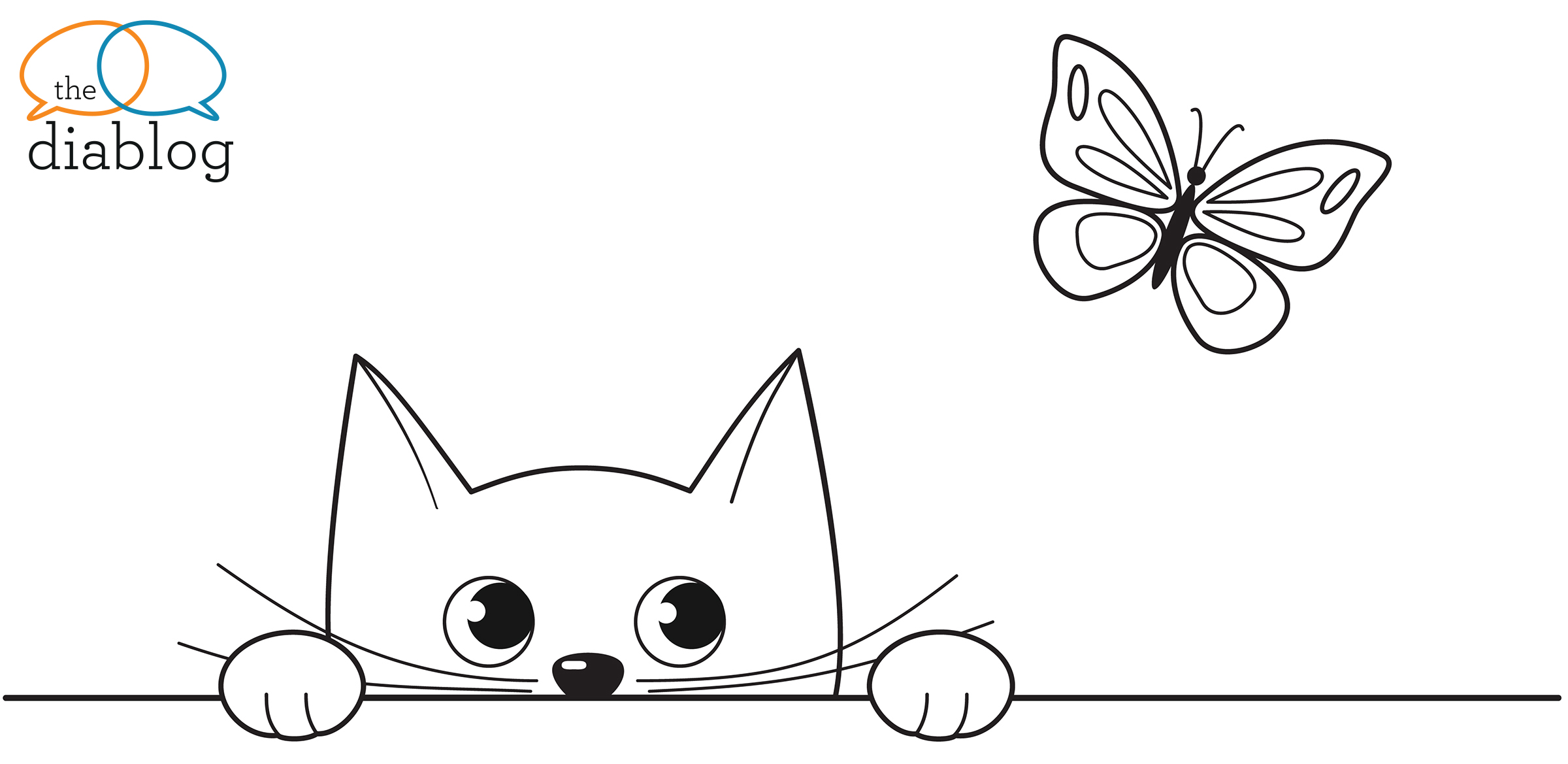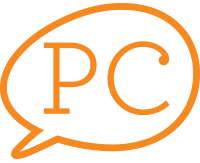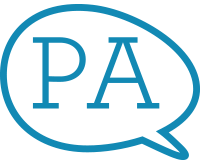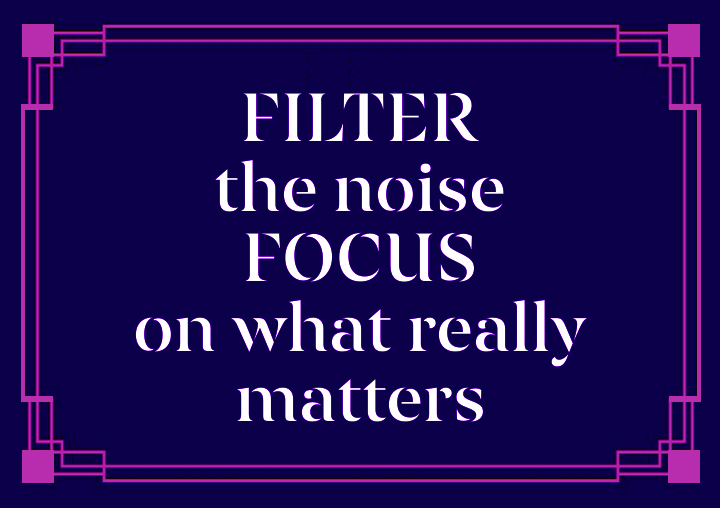
 By Pon Angara & Patty Cooper
By Pon Angara & Patty Cooper 
My contract ended, Pon. 
 I’m sorry to hear, Patty. Are you ok? Anything I can do to help?
I’m sorry to hear, Patty. Are you ok? Anything I can do to help?
 It’s all good. The practices that I put in place at the beginning of the year to alleviate anxiety really helped me to stay grounded and allowed me to choose to end my time at the company with gratitude. In my closing conversations with leadership, we left the door open for future projects. As I drove away with the belongings from my desk, I felt energized and excited.
It’s all good. The practices that I put in place at the beginning of the year to alleviate anxiety really helped me to stay grounded and allowed me to choose to end my time at the company with gratitude. In my closing conversations with leadership, we left the door open for future projects. As I drove away with the belongings from my desk, I felt energized and excited.
With this pause for possibilities, I thought about our 2019 instigating mission. Pon, you asked a really juicy question in our last conversation, “What kind of instigator are you?” It’s such a great question!
 It’s a question we should be asking ourselves every day. There’s this internal conversation going on as I sip my morning coffee about how my actions and words define who I am today. What does this day’s accomplishments mean for myself and for the people receiving the products of my actions? What do I say to them?
It’s a question we should be asking ourselves every day. There’s this internal conversation going on as I sip my morning coffee about how my actions and words define who I am today. What does this day’s accomplishments mean for myself and for the people receiving the products of my actions? What do I say to them?
 That’s a great mindful practice, Pon. In ontological coaching, we focus on three areas of exploration when working with a client – the body, emotions and language to help us and the client understand how they see the world. The language we use creates the reality we live in. Words are powerful. The definitions of the words we choose are shaped by so many factors including culture, age, gender, religion, socio-economic status, etc.
That’s a great mindful practice, Pon. In ontological coaching, we focus on three areas of exploration when working with a client – the body, emotions and language to help us and the client understand how they see the world. The language we use creates the reality we live in. Words are powerful. The definitions of the words we choose are shaped by so many factors including culture, age, gender, religion, socio-economic status, etc.
 Because of the visceral effect words have on humans, those with a specific agenda can use language to trigger emotions that motivate people to react in a certain way.
Because of the visceral effect words have on humans, those with a specific agenda can use language to trigger emotions that motivate people to react in a certain way.
 Take a word like “Wall.” It’s a really charged word right now. I can guarantee you that you will get a different response if you ask what this word means to a family who could be losing their land for said wall, or a family on the other side who is seeking refuge, or a government worker who was affected by the shutdown, or a Parisian reading the news at a cafe. “Mon dieu, why are zeez Americans so obsessed wiz a wall?” Everyone sees and experiences the world differently. No one is having the same experience.
Take a word like “Wall.” It’s a really charged word right now. I can guarantee you that you will get a different response if you ask what this word means to a family who could be losing their land for said wall, or a family on the other side who is seeking refuge, or a government worker who was affected by the shutdown, or a Parisian reading the news at a cafe. “Mon dieu, why are zeez Americans so obsessed wiz a wall?” Everyone sees and experiences the world differently. No one is having the same experience.
 Our experiences, our aspirations and our worldview determine how we forge meaning into our language. Words get their power from the meaning they carry. Words get their meaning from the stories that people attach to them. In order to change what a word means to a group of people, we must first attach it to a new story. Changing the context leads to a change in their perception.
Our experiences, our aspirations and our worldview determine how we forge meaning into our language. Words get their power from the meaning they carry. Words get their meaning from the stories that people attach to them. In order to change what a word means to a group of people, we must first attach it to a new story. Changing the context leads to a change in their perception.
 Yes, changing the context is key. Getting back to the word “instigate,” how can we effectively instigate, if we haven’t defined and envisioned what that means for ourselves. When I think of instigators, I think of super go getters. Someone who is doing and creating all the time like Karl Lagerfeld. He is the head designer for two of the most iconic fashion brands, Chanel and Fendi. He shoots all the campaigns, designs his own label, collaborates with other artists, etc. Do you know that his cat, Choupette, has her own line of accessories that makes millions a year. And I think, that’s not me. I’m no instigator. Not just because I’m not a cat, but I feel like I don’t have the energy, the gumption, the tenacity for the mountain of creative output that man and cat put out. Ok, let’s put aside my jealousy for Choupette, and that I shouldn’t be comparing myself to Karl Lagerfeld or anyone. My definition of instigating is exhausting. I need a nap and a new definition! Tell me, Pon, what does instigator mean to you?
Yes, changing the context is key. Getting back to the word “instigate,” how can we effectively instigate, if we haven’t defined and envisioned what that means for ourselves. When I think of instigators, I think of super go getters. Someone who is doing and creating all the time like Karl Lagerfeld. He is the head designer for two of the most iconic fashion brands, Chanel and Fendi. He shoots all the campaigns, designs his own label, collaborates with other artists, etc. Do you know that his cat, Choupette, has her own line of accessories that makes millions a year. And I think, that’s not me. I’m no instigator. Not just because I’m not a cat, but I feel like I don’t have the energy, the gumption, the tenacity for the mountain of creative output that man and cat put out. Ok, let’s put aside my jealousy for Choupette, and that I shouldn’t be comparing myself to Karl Lagerfeld or anyone. My definition of instigating is exhausting. I need a nap and a new definition! Tell me, Pon, what does instigator mean to you?
 I’ve recently learned that the word “instigator” has two faces.
I’ve recently learned that the word “instigator” has two faces.
Patty, I too had a contract that was ended a few days ago. At the start of the project, the client gave me what seemed to be parameters and objectives. As we progressed, they began to pull me in multiple directions which gave me the sinking feeling that they, in reality, didn’t know what they wanted in the first place. We had gone well beyond the initial scope when I learned that they had been changing direction based on the opinions of others who didn’t belong to the original group of decision makers. At that point, I decided to pull the cord on the emergency brakes to avoid letting this project derail. I asked the client for a conversation to get clarity on where we were going with all this. As soon as I did that, they asked me to leave the train.
I’ve always thought of an instigator as someone who initiates. What just happened to me made me realize that as an instigator, I can take the initiative to either START something or STOP it – two sides of the same coin. Either way, I create an opportunity to pivot. In changing my direction, I see a new path ahead of me, a new destination, while taking with me some new insight from the teaching moment I’m leaving behind.
Like you, I was able to keep the door open for future collaborations and I moved on energized, but mostly relieved!
 An instigator can start and stop – I love that you said that and followed your intuition. Tell me what kind of instigator have you observed yourself to be? Where does that fire come from to take charge?
An instigator can start and stop – I love that you said that and followed your intuition. Tell me what kind of instigator have you observed yourself to be? Where does that fire come from to take charge?
 I love creating from nothing. It’s actually more than love. It’s who I am. I live and breathe it. Making the invisible, visible. Making what wasn’t, be. As a storytelling artist, I begin with what our human senses can take in and make these the building blocks of something that people can see, hear, and feel. Something that has a story they can experience, learn from and share. Something that connects people mentally, socially, physically, and on other levels.
I love creating from nothing. It’s actually more than love. It’s who I am. I live and breathe it. Making the invisible, visible. Making what wasn’t, be. As a storytelling artist, I begin with what our human senses can take in and make these the building blocks of something that people can see, hear, and feel. Something that has a story they can experience, learn from and share. Something that connects people mentally, socially, physically, and on other levels.
How about you, Patty? As an instigator, who are you?
 When I knew my contract was ending, I took a look at job sites like Indeed and immediately felt drained and overwhelmed. My whole body collapsed and I heard a strong internal No. Searching job sites is not how I’m going to find the next opportunity. It’s not who I am. I love talking with people and hearing their stories. I’ve always been this way. All my report cards said, “Patty is a good student, but she talks to others too much and distracts them from their work.” Hey, teach, I was networking! It’s a highly coveted soft skill!
When I knew my contract was ending, I took a look at job sites like Indeed and immediately felt drained and overwhelmed. My whole body collapsed and I heard a strong internal No. Searching job sites is not how I’m going to find the next opportunity. It’s not who I am. I love talking with people and hearing their stories. I’ve always been this way. All my report cards said, “Patty is a good student, but she talks to others too much and distracts them from their work.” Hey, teach, I was networking! It’s a highly coveted soft skill!
My new definition of instigator will have a strong foundation in community and be very team oriented. I love connecting with others and connecting others. Time and time again, I find solutions, insight and possibility for collaboration in conversation. It energizes me. My body completely comes alive. I sit up taller, I lean in with interest, I can’t stop smiling. That’s the type of instigator I am and it works for me.
 I love it! You and I are both connectors, but in different ways and through different paths. Similar, but different. Definitely complementary which is why we decided to co-create this diablog. In our next conversation, I look forward to getting the scoop on your new discoveries for sparking connection, exploring collaboration, and building community.
I love it! You and I are both connectors, but in different ways and through different paths. Similar, but different. Definitely complementary which is why we decided to co-create this diablog. In our next conversation, I look forward to getting the scoop on your new discoveries for sparking connection, exploring collaboration, and building community.
Pon Angara is the Principal at Barkada Circle®, using story to help nonprofit organizations manifest their missions and build their community of support.
Patty Cooper is a Storyteller, Certified Newfield Ontological Coach and Consultant.
Resources:

 By Pon Angara, VisionReady storyteller
By Pon Angara, VisionReady storyteller



